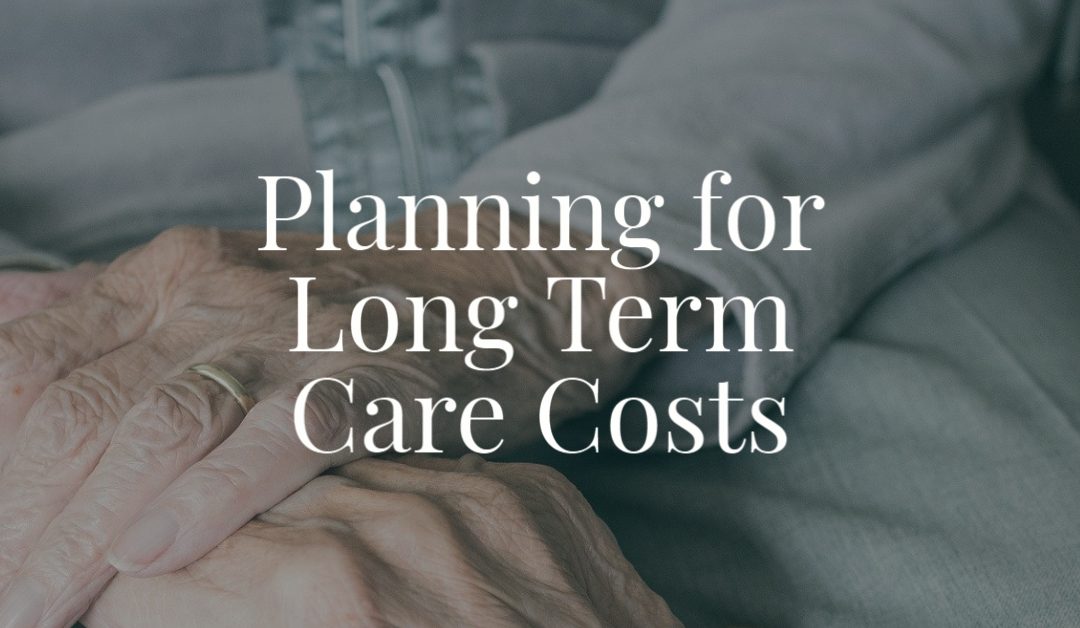Coming up on a new year helps us realize how quickly the years go by. As a senior, they seem to get continually faster and we don’t know where the time went. That is why it is important to think about planning for the future now before it slips away and you find yourself not knowing how to cope.
None of us know what will happen next in our lives, but we can make a legal plan that provides for the long term care services we may need in the future while also maximizing our assets.
Estate Planning
Estate Planning is just a fancy way of saying that you have plans for your future, including if or when you need long term care. There are many types of legal instruments that accomplish this task. They include Powers of Attorney Documents, Trusts, and Last Will and Testament. Let’s look at some of the important ways you can plan and make sure of your future even if you don’t know exactly what that future will be.
Durable General Power of Attorney
There are no documents more crucial to planning for elderly years than a durable general power of attorney. With this planning instrument, you can delegate broad powers to someone you trust to care for all aspects of your life should you become disabled. This person can step in and help as much or as little as you need with financial or personal issues. The only things they can’t do for you are to vote or get married.
If you want to plan well, go ahead and make someone in your life your Durable General Power of Attorney so that you and your family can avoid a filing for guardianship in a legal suit. You don’t need the courtroom dramas, filing fees, and judicial oversight into absolutely every decision that is made.
Declaration of Incompetence
Having a Durable General Power of Attorney is much preferred to having someone file a claim in court to have you declared incompetent. This can be an embarrasing situation in which the you have to listen to anecdotes about how you are incompetent. Often, these are testimonies given by the ones you love and trust the most.
As soon as the incompetence suit is filed, you lose your driver’s license. Often you can understand what is happening even if you don’t fully comprehend everything that is going on. Families often fight over who should be the guardian and what should happen. Judges often have to appoint someone outside of the family because of the infighting.
Even when someone is named a guardian, they have to file onerous amounts of paperwork on exactly how the money is spent each year. There are also limited powers in a guardianship. Often the guardian has to petition the court, attend a hearing, and get full agreement and permission from the court before selling anything worth more than $5,000 or before agreeing to any medical procedure on your behalf.
The Durable General Power of Attorney prevents all of the drama of going through an incompetence suit. You choose the person you can trust to take care of you instead of the court. The rest of your family does not have to be involved unless you would like them to.
Medicaid Planning
Medicaid planning is just another way of saying that you are working your way through the rules of the state’s Medicaid program so that your assets wiggle around the rules and fit into the regulations to qualify for Medicaid funds. Often, attorneys are able to recharacterize an asset as something that allows you to qualify for Medicaid.
Medicaid Recovery
Attorneys can also help to prevent Medicaid Recovery from taking the one large asset you are allowed to own under Medicaid- your home. Often the Medicaid Recovery program will come in and make a claim on your estate for $50,000 to $300,000 after you die, effectively snatching any inheritance, including your home, away from your heirs.
To qualify for Medicaid help with long term care, under North Carolina law, you can own a home that is worth up to $585,000 (in 2019), as long as you intend to return there or if your spouse or another dependent relative lives there. Don’t lose this large asset of your estate through poor planning.
Your Will & Long Term Planning
Your Will determines who will get the assets of your estate when you die. If someone leaves assets to someone who has already qualified for Medicaid, they may lose eligibility. At this point they would have to spend down what they inherited before they are eligible again.
So if your sister is also on Medicaid, you don’t want to outright leave any major assets to her in your will. Your spouse is also an issue if they are also on Medicaid and suddenly inherit money from your estate.
Trusts
With a trust, you can do several things at once.
- You reduce probate hassles so that the settling of your estate can last a matter of weeks rather than 6 months to 2 years.
- You can include measures that provide for who has positions of power in your estate, the order they should serve, and the scope of their authority.
- Dead-hand control is a legal term that means you can put conditions on inheritance to make sure heirs are ready to inherit or even make them adhere to eligibility requirements in order to receive the money.
- You can shelter assets from Medicaid eligibility counting of assets
- You can shelter assets from Medicaid Recovery after your death
Seek Help
Planning for long term care is not done overnight. It is crucial to speak with an attorney to plan for an expense of this magnitude. Thinking about where your assets lie and how to maximize their value even if you need Medicaid is part of good estate planning. A knowledgeable estate planning attorney can use their experience with the laws of NC to expertly craft the documents you need to preserve your assets for your own care or for the next generation. If you want to get a start on planning for your future, check out our downloadable and bindable guide to help you on this journey at estateinformationguide.com
Use the guide to answer these questions below and more in one bindable book so that others know what to do and what to expect when you die.
- Where are your most important documents?
- What are your passwords?
- Who are your beneficiaries?
- What are your medical and after life wishes?
- Email and Social Media Account Access.
- And much much more…


